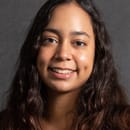This past summer, I bought one of my close friends a copy of the book Well-Read Black Girl as a birthday gift. Of course, me being a lover of anthologies and any form of written work produced by women of color, I soon had to get a copy for myself. In this wonderfully written anthology, twenty-one Black women, specifically Black female writers and activists, discuss how they have carved out a place for themselves in American literature. They talk about the women and other writers who came before them and inspired them, and they also outline the goals they aim to achieve with their own work.
Jesmyn Ward, the author of Sing, Unburied, Sing who actually came to speak at Williams my freshman year, writes about her love for E.L. Konigsburg’s Jennifer, Hecate, Macbeth, William McKinley, and Me, Elizabeth, a novel that is about a young Black girl named Jennifer who convinces another girl that she is a witch. Barbara Smith, a feminist scholar and activist, tells the readers how James Baldwin was a continuous presence in her literary life and how her appreciation for his work and writing of homosexual characters only increased when she came out as gay herself. Even Rebecca Walker, the child of renowned author Alice Walker, has her own section in this book. This book is a beautiful assemblage of literary sisterhood. Reading this anthology and hearing this chorus of voices sing the praises of Black female literature was really a source of pure joy for me as well as a source of comfort during these particularly isolating times. At the same time, though, reading “Well-Read Black Girl” made me think about how far we still have to go in regard to the Black woman’s representation in literature and other media.
A question that Glory Edim, the founder of the Well-Read Black Girl book club, proposes in this anthology’s introduction is: When did you first see yourself in literature? That is a question that I myself confronted in a previous HerCampus article. As a Caribbean girl of Dominican and Puerto Rican ancestry, I did not ever see my identity represented in a novel until I was 18 years old and at Williams reading Loida Maritza Perez’s Geographies of Home, and unfortunately, this is not a rare experience. Even in Well-Read Black Girl, author Veronica Chambers notes that she too did not see her Caribbean woman identity represented in a novel until she got to college and read Jamaica Kincaid’s short story “Girl”. Now that I am a college student and I can choose the classes I want to take and the literature I want to read, I have made it a point to seek out books in which I see myself represented, but that should not be as difficult as it is.
The fact of the matter is that Black literature is not only about African American literature. There is an Afro-diasporic community that spans the entire world and a hidden world of magnificent literature to go with it. Literary curriculums across the country, not just those of higher education but also those for elementary, middle, and high school, need to expand their definition of Black literature in order to encompass the complexities of the Black experience. Not only will future generations of Black women be able to see themselves and their varied backgrounds more clearly reflected in the pages of their school books, but also everyone will benefit from reading some amazing literature! Speaking of which, if you yourself want to expand your knowledge of Black literature, here are some starting recommendations I have:
-
Never Look an American in the Eye by Okey Ndibe
-
Kaffir Boy by Mark Mathabane
-
My Sister, the Serial Killer by Oyinkan Braithwaite
-
The Turner House by Angela Flournoy
-
The Poet X by Elizabeth Acevedo
-
American Sonnets for my Past and Future Assassin by Terrance Hayes
-
Sula by Toni Morrison
Here’s to more Black representation in literature! Happy reading!

